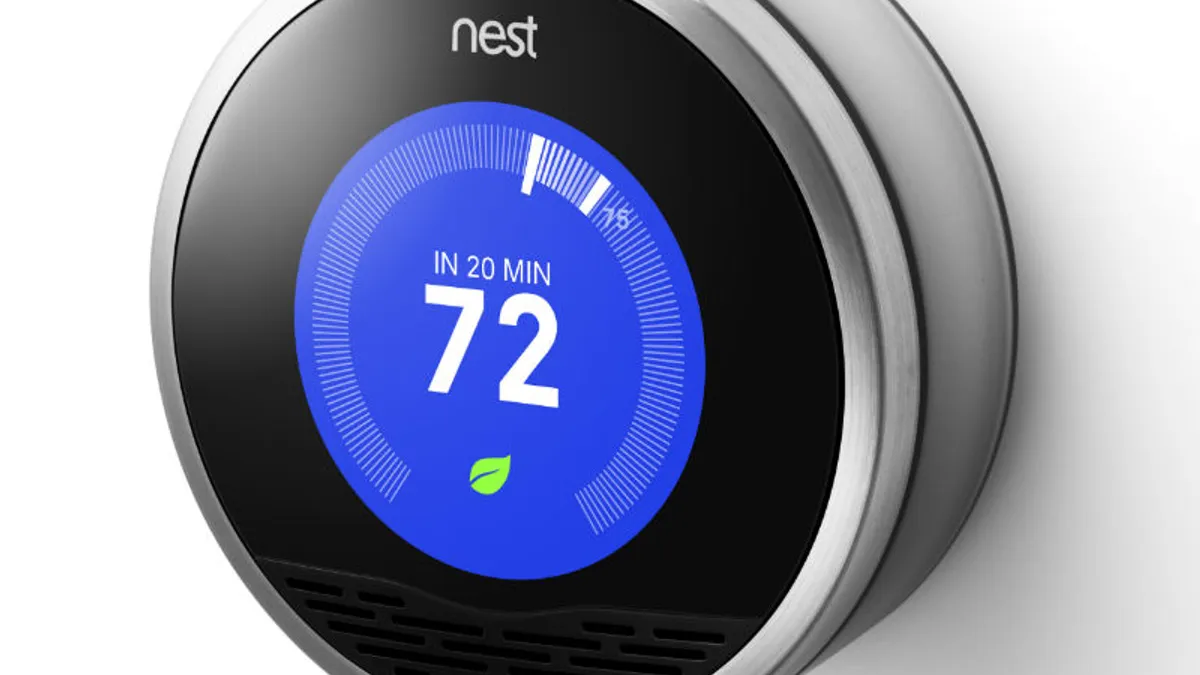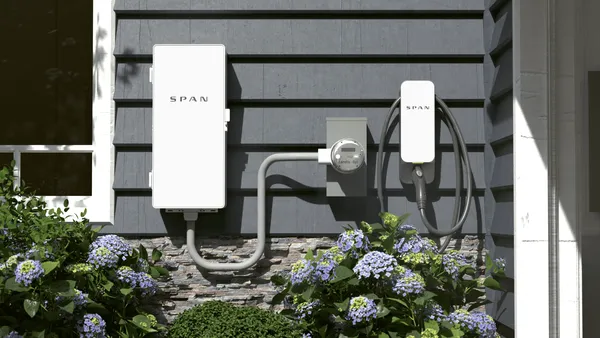Dive Brief:
- Google announced Monday that it is acquiring home energy management startup Nest Labs, Inc. for $3.2 billion.
- Nest has taken oft-overlooked home devices like thermostats and smoke alarms and built popular products like the Nest Learning Thermostat and Protect Smoke + CO Alarm.
- The deal is still pending U.S. regulatory approval, among other conditions, but is expected to close in the next few months.
- CEO Tony Fadell will continue to lead Nest, which will maintain an individual brand identity.
Dive Insight:
Despite retiring its own home energy management platform PowerMeter back in 2011, Google now appears to have staked out an early lead in the race for the smart home.
Nest's most successful product is its Learning Thermostat. The device learns a user's behavior and can automatically adjust over time, and it can also be programmed via smartphone. The technology empowers consumers to save energy without thinking about it, while also giving them more control over the comfort of their own home.
Nest's products are sexy, intuitive and easy-to-use. Not surprising when you consider that the brains behind Nest (co-founders Tom Fadell and Matt Rogers) were also some of the brains behind Apple's iPod and the iPhone.
In the short term, expect Nest to scale fast. Fadell is planning to "increase our marketing spending to get more people to use Nest products" in the coming months.
"Google will help us fully realize our vision of the conscious home and allow us to change the world faster than we ever could if we continued to go it alone," Fadell writes in a post explaining why he sold Nest. "We’ve had great momentum, but this is a rocket ship."
In the coming years, look for Nest to build out good-looking intelligent hardware for seemingly boring household technology (Greentech Media analysts came up with a hilarious list of potential new Nest products, including extension cords and exit signs). I expect Google and Nest to try and connect the smart home through one centralized touchpoint for the consumer.
Google always looked likely to get into the energy space—it was just a question of when and how. With the Nest acquisition, Google—the great data collector—just got a window into consumers' physical homes. Look for Google to leverage that opportunity and become a leader in the fast-growing home energy management space.














